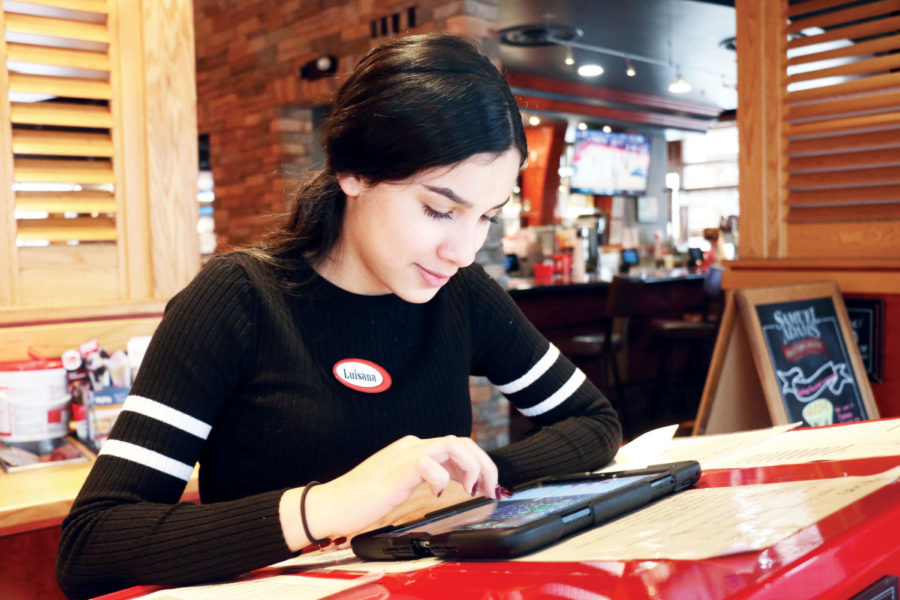Two years ago, senior Luisana Rodriguez and her mother left their home in Venezuela and moved to the United States in order to avoid the growing political and economic crisis spreading across the country. They first moved to Miami and then to Indiana, but at the time, the conditions in Venezuela were not as bad as they are now.
“You really can’t live there because it’s really hard to. When we came here, it wasn’t as bad as now, so we actually moved before everything was crazy. We didn’t have to live without food and medicines,” Rodriguez said. “Everything is being imported. Nothing is being made in the country. Everything is being bought from the outside. So those people buy toilet paper, food for us, rice, and all that, they buy it outside of the country.”
According to the BBC, the economic crisis in Venezuela began with the introduction of a socialist government in 1999. The socialist policies to make basic goods more affordable for the poor failed and made it difficult for businesses producing these items to make a profit. Poverty and inflation have increased in Venezuela since the 2010s. To make it all worse, last year Nicolás Maduro won the presidential vote, but those results were challenged by several countries, including the United States, who deemed it fraudulent and moved to recognize Juan Guaidó as president.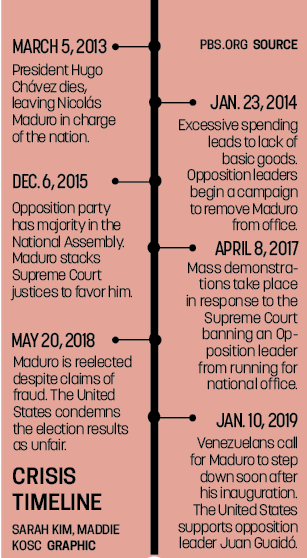
Furthermore, one of the most recent challenges Venezuelans are facing is hyperinflation. Towards the end of 2018, the annual inflation rate rose to 1.3 million percent and prices began to double every 19 days on average, leaving many Venezuelans incapable of affording basic goods such as food. Because of this, nearly 3 million Venezuelans have left the country since 2014.
World history teacher Katie Kelly said while the current economic issues in Venezuela have gotten worse over the years, the country’s government was never ideal to begin with.
“They’ve had a history of crime (and) economic problems in Venezuela,” Kelly said. “But with the rise of the new government, they’re not fixing the problems, and in a lot of ways they’re making them worse. And in the process, they are violating people’s human rights in Venezuela and there’s a danger of that continuing to spiral.”
Four years ago, junior Luis Milano moved from Venezuela to the United States in order to escape the many hardships that Venezuelans must face due to the political and economic climate.
“(The new president) led to a lot of problems and violent protests in the streets and it wasn’t a really safe place to live there anymore. There was very little food. I’m pretty sure by now there is none,” Milano said. “My family decided to move here for those reasons. There wasn’t really a future for me and my siblings in Venezuela for us to have a successful and good life there. So my parents dragged me and my two younger sisters here to America for that same reason. So we can have better lives.”
Despite moving to the United States and being able to live in a country with a much more stable economic system, Rodriguez said she has had some difficulty while adjusting to life in a foreign country, specifically after moving to Carmel from Miami.
“I lived in Miami and the people are different there. (In Miami), everyone is more up to knowing everyone and knowing more people,” Rodriguez said. “Here, everyone has their social group, and everyone has their own life and their own business, and I feel like they don’t want to get involved. It’s not everyone, but I feel like that’s a tendency here.”
Milano said moving from Venezuela to Carmel has provided him with new opportunities in his education because of the poor quality of education in Venezuela.
“I’ll say here at Carmel High School, the education is really (great) compared to when I was going to high school in Venezuela. In Venezuela, we didn’t have good teachers or (we had) teachers who just decided not to show up. (Here), they show up, you get a good education, and all that,” Milano said. “My friends, they graduated high school, they’re not in college because there’s no good colleges to go to. If they’re going, it’s really expensive to go and they’re not getting the education they would get here, per se.”
Rodriguez said that while the United States has exposed her to certain negative experiences, she feels that living in a new country has provided her with opportunities she wouldn’t have in Venezuela right now.
She said, “One of the good things in this country is you have the room to actually grow if you want, if you want to fight for your opportunities. That’s why we’re here: for our future and our opportunities.”
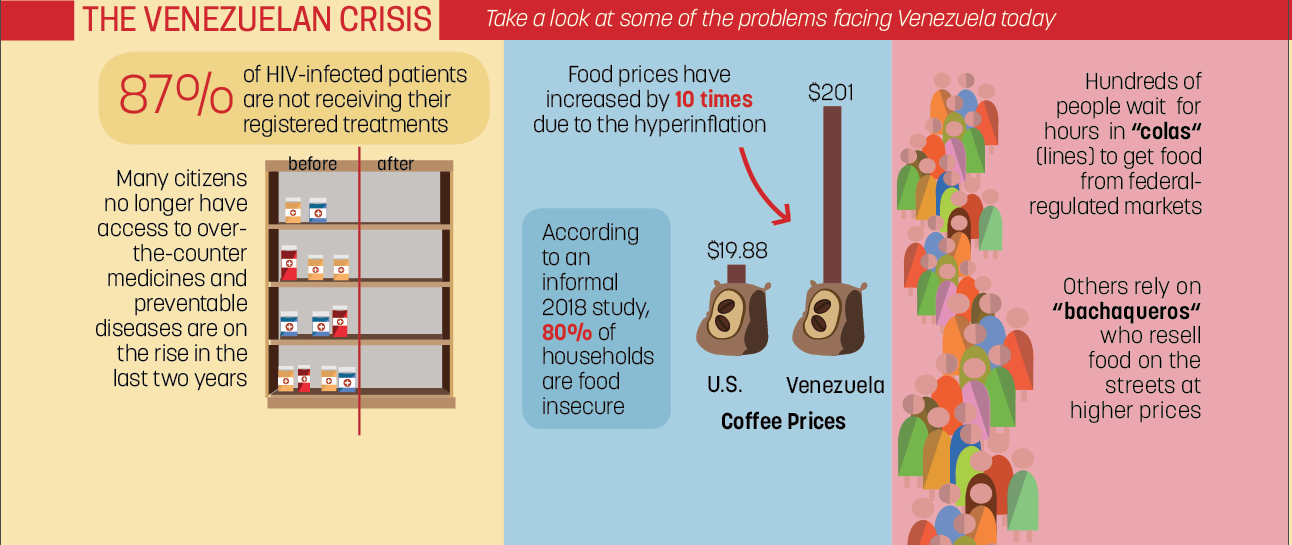
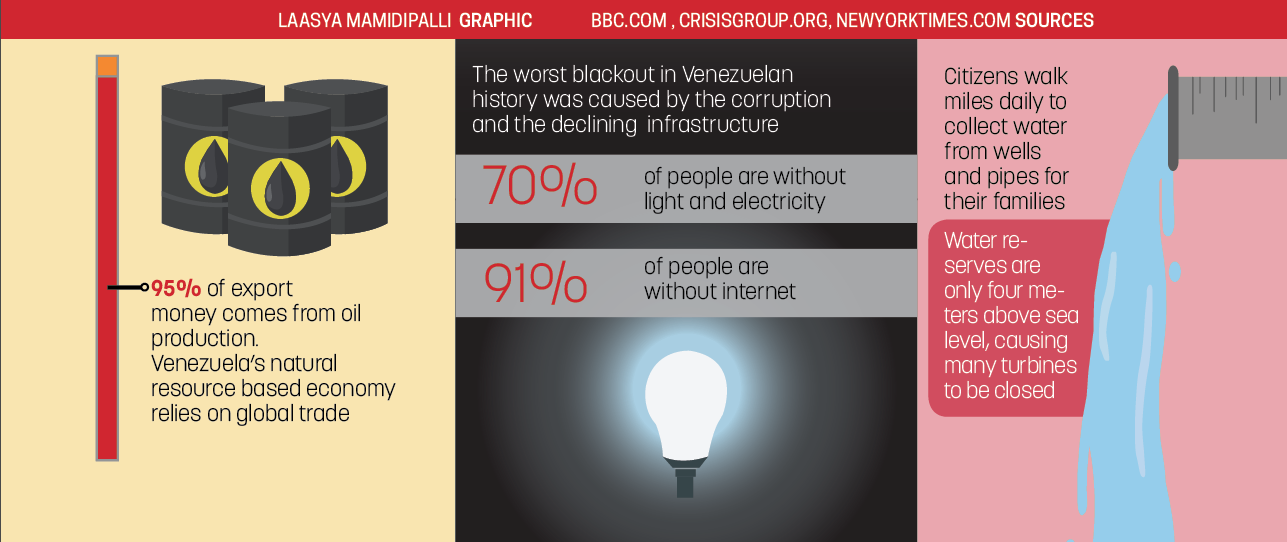



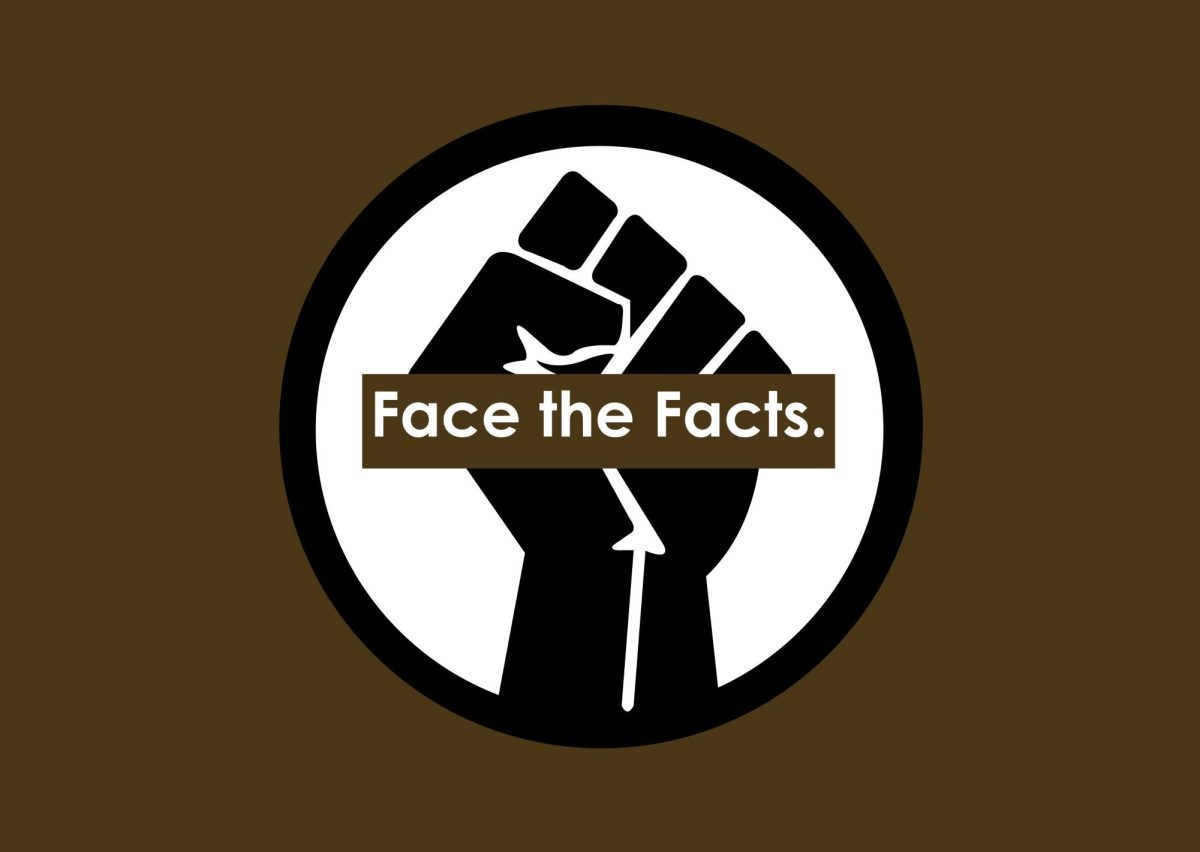




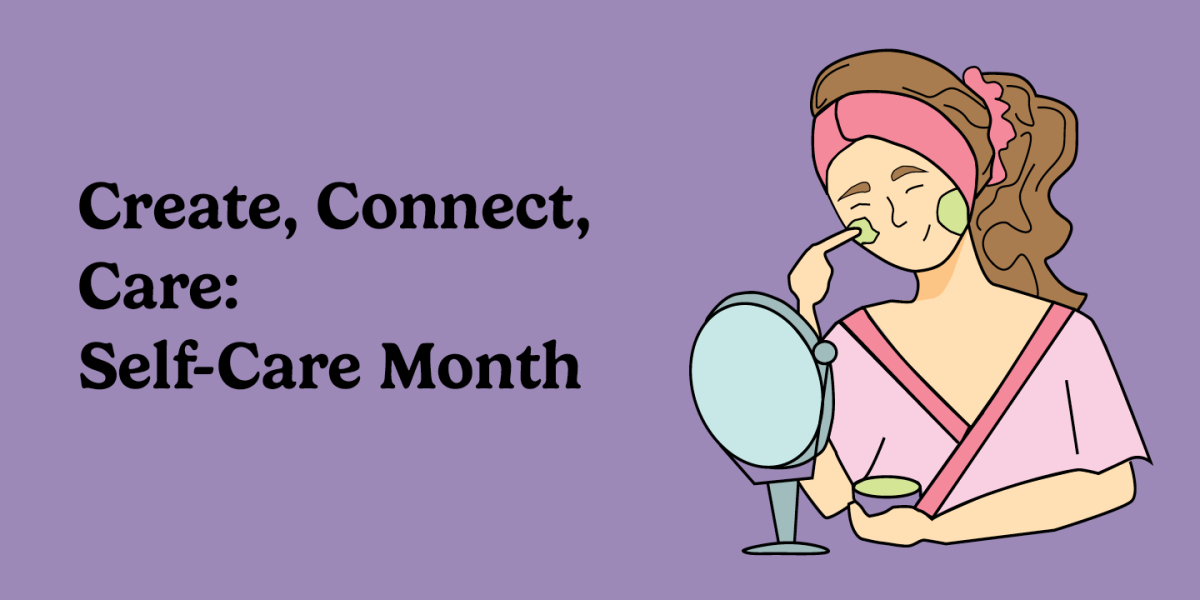







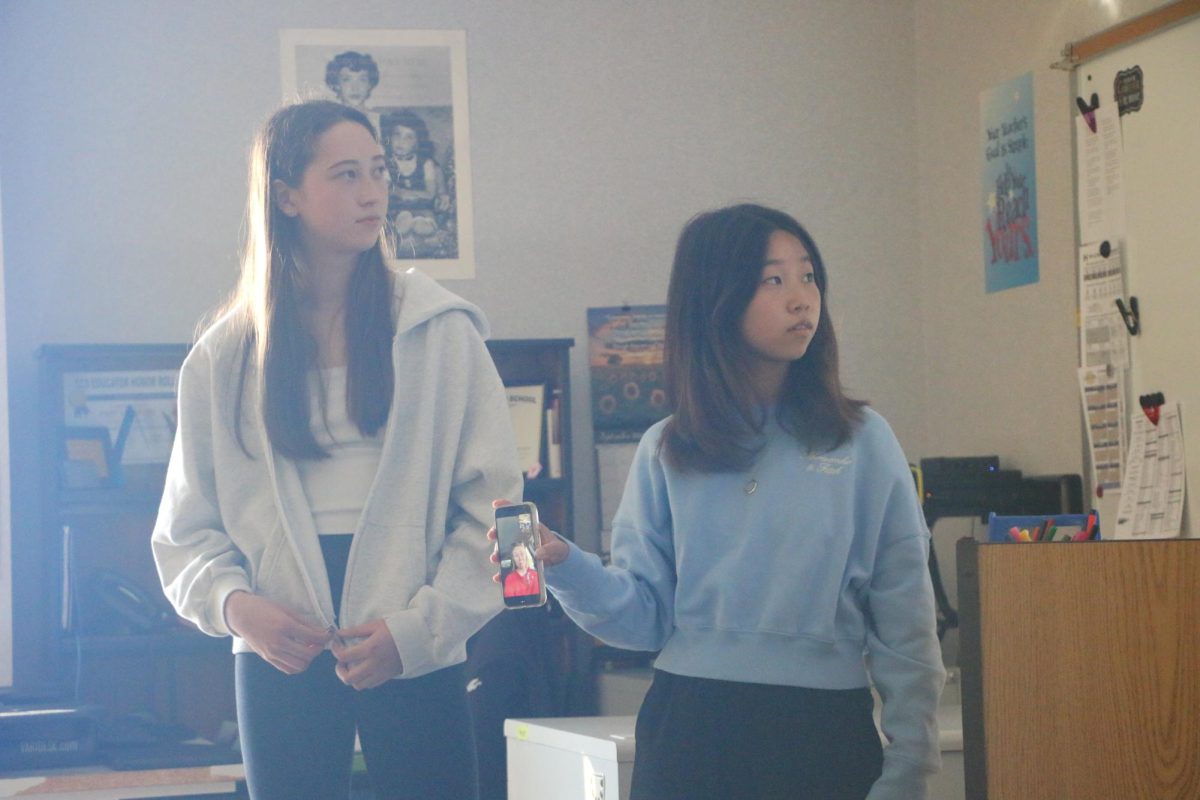
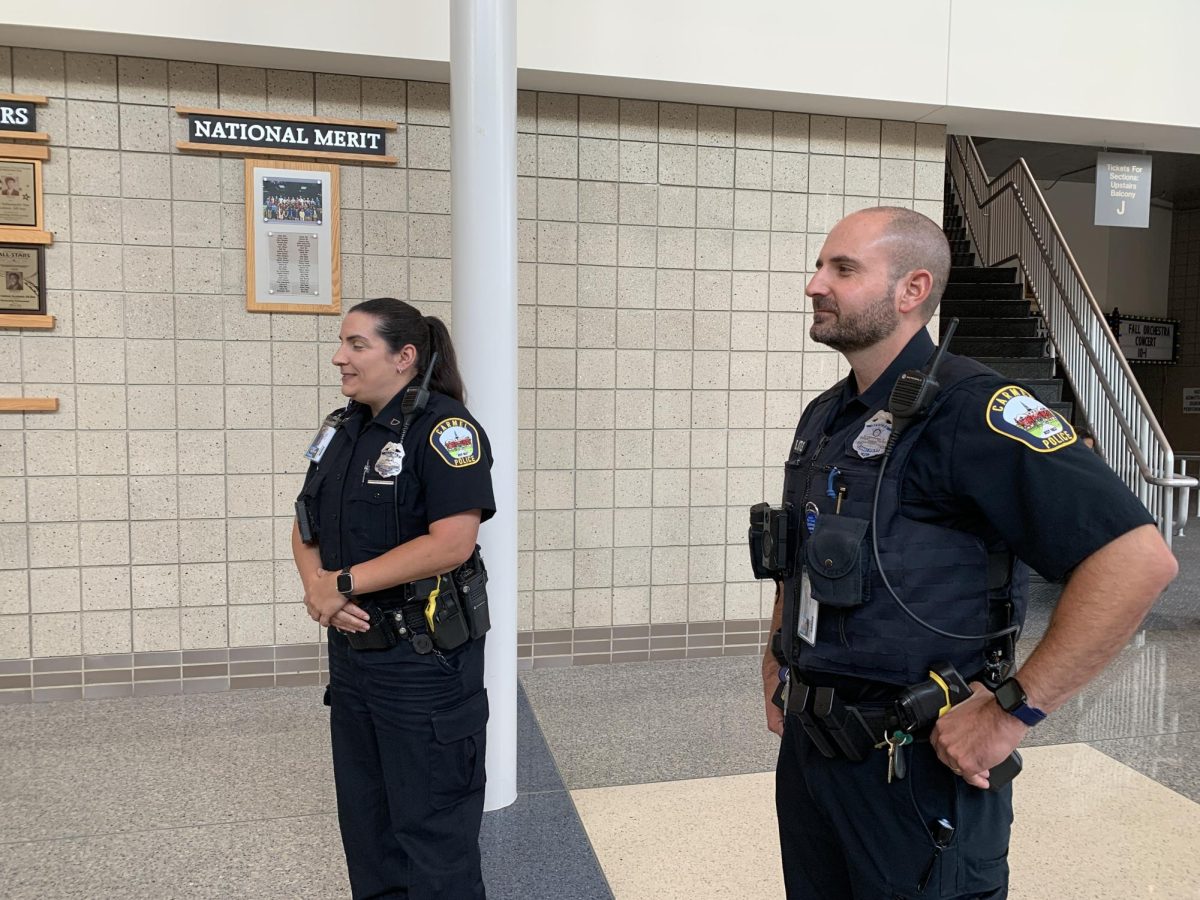

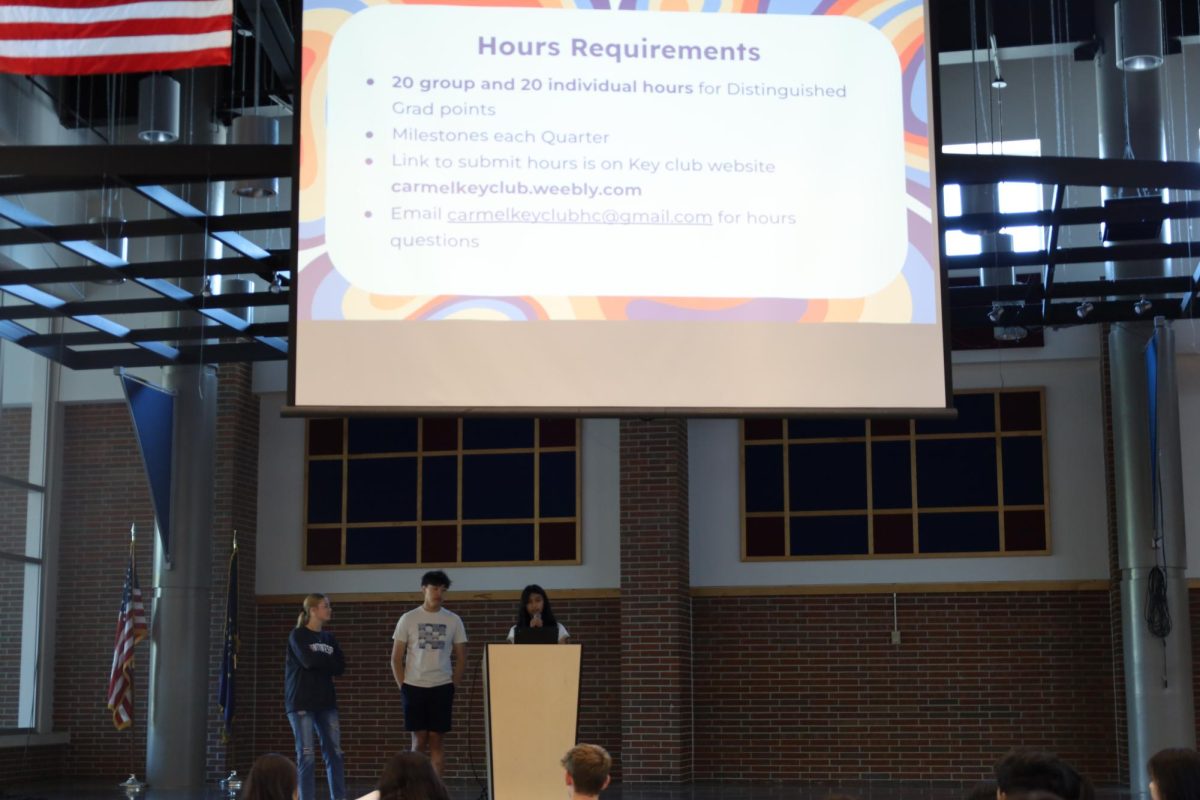


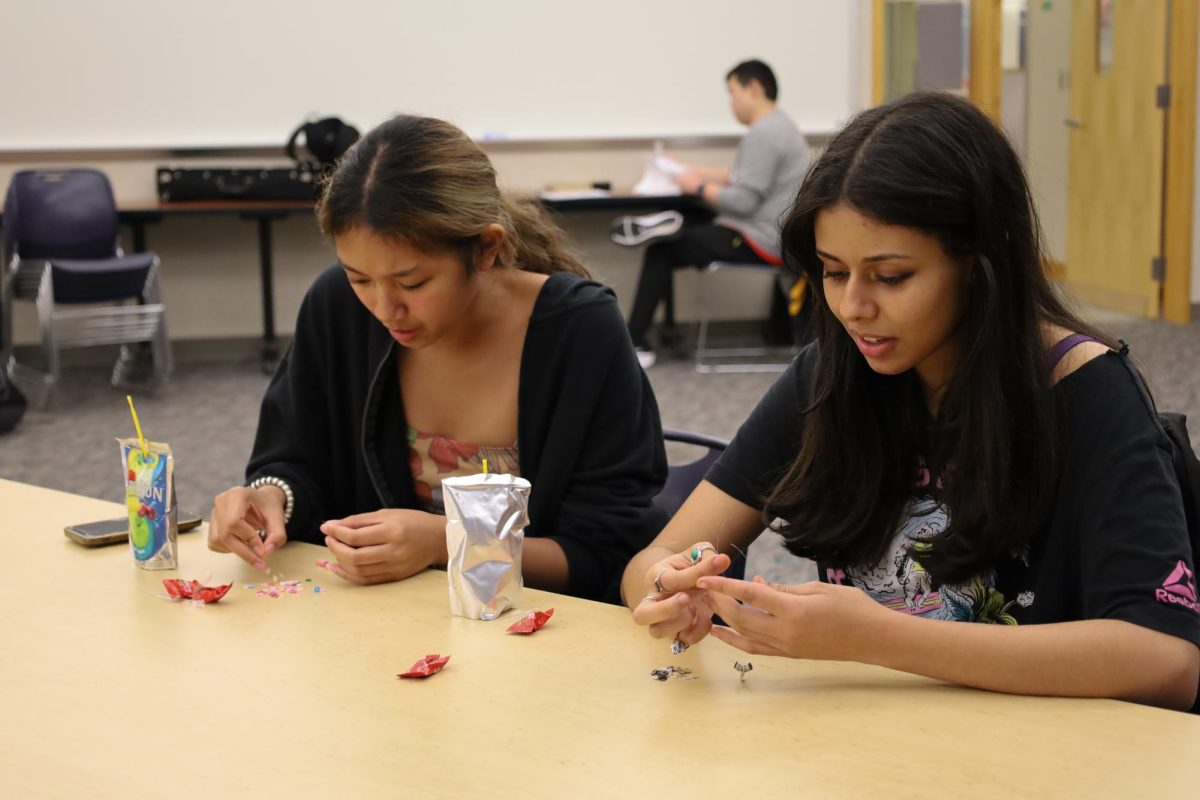
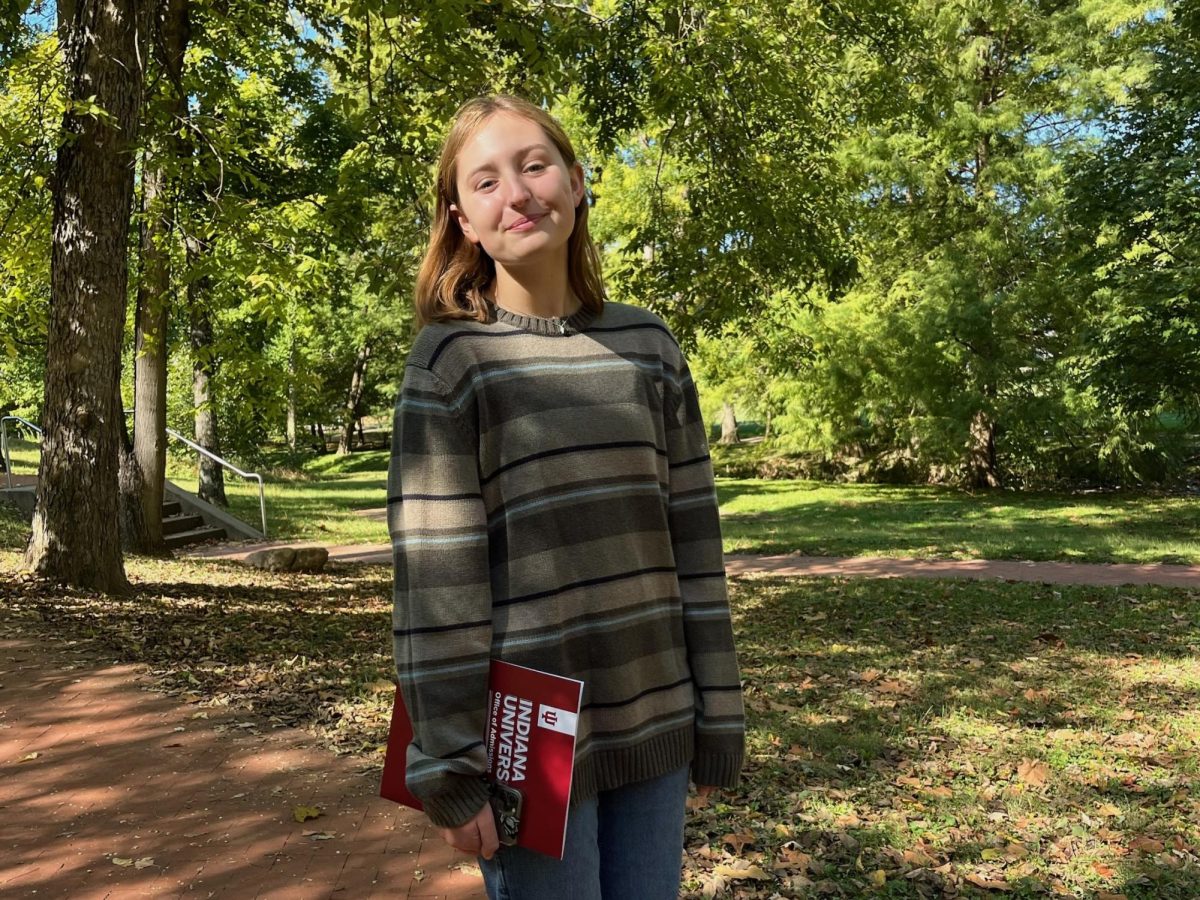

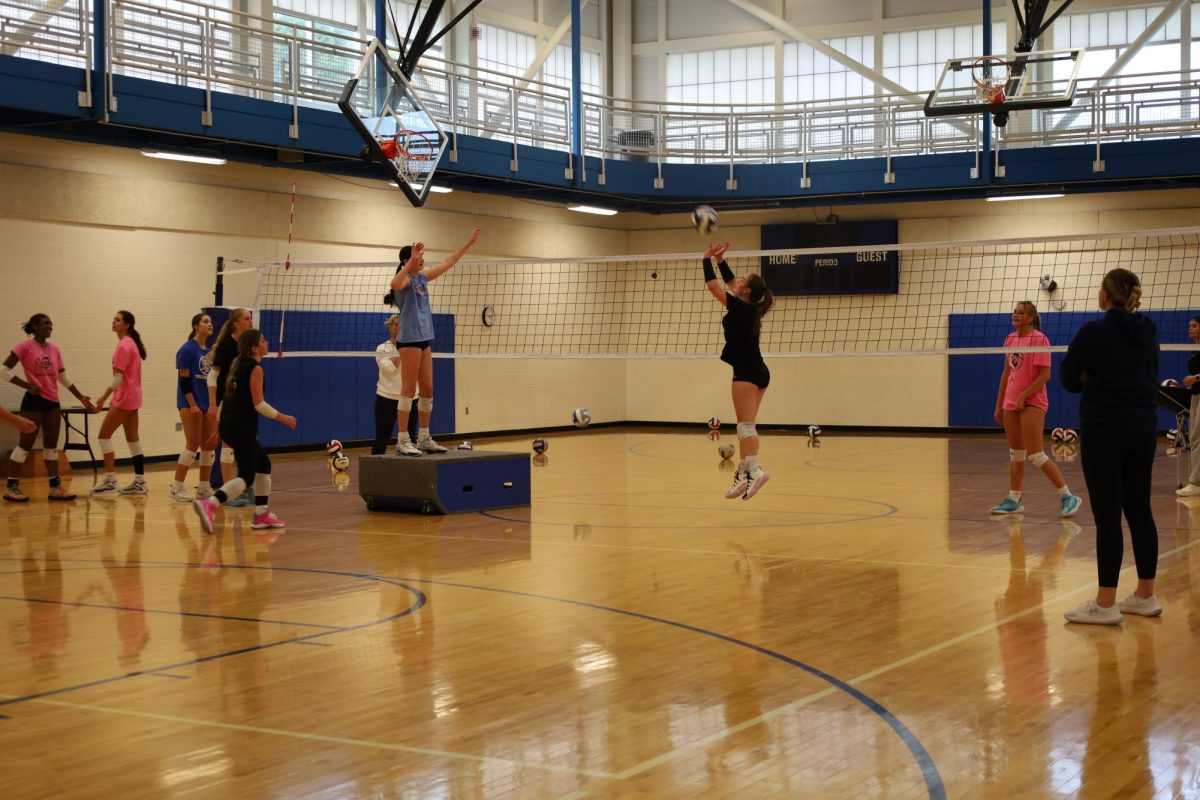
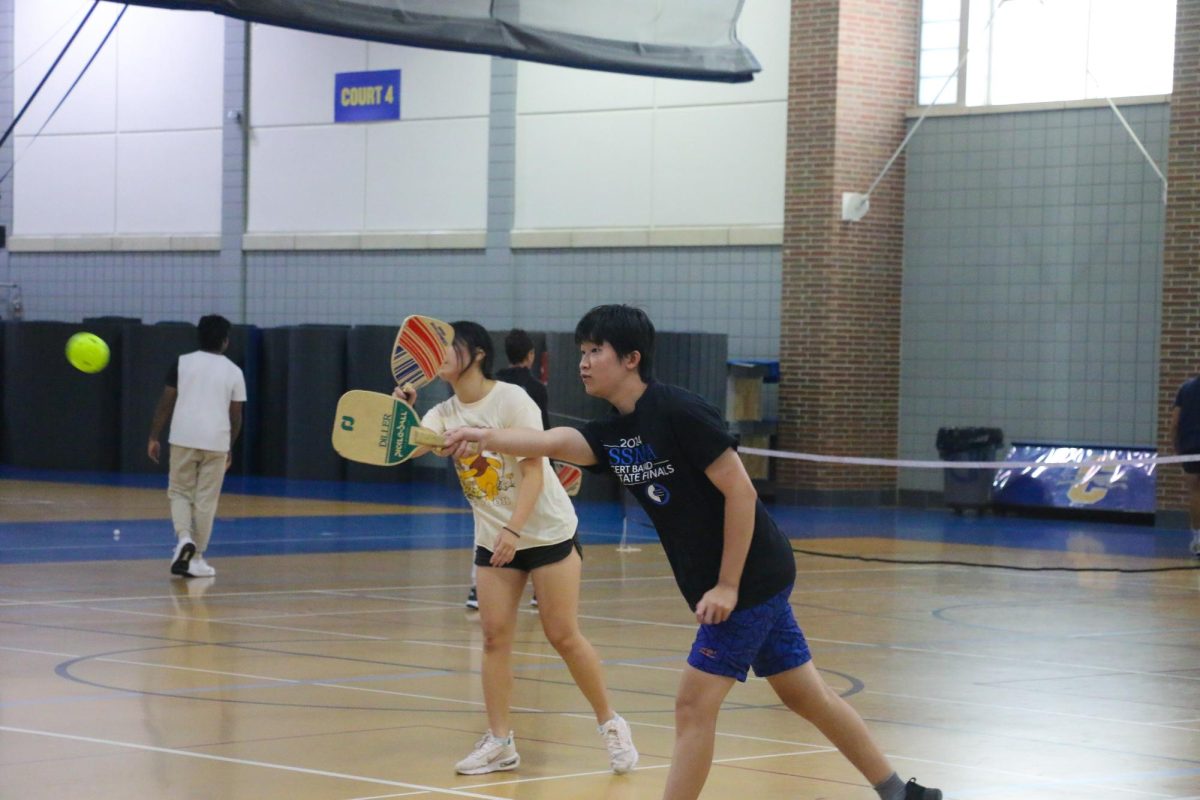



![“Uglies” is a call for change in the YA dystopian genre [opinion]](https://hilite.org/wp-content/uploads/2024/10/Perspectives-Cover-1200x471.jpg)

![Streaming services are pioneering the future of television [opinion]](https://hilite.org/wp-content/uploads/2024/09/CAtherine-streaming-1200x471.jpg)
![Parasocial relationships unnecessary, intrude on celebrities’ lives [opinion]](https://hilite.org/wp-content/uploads/2024/09/4-Mady-Kiser-Cover-1200x471.jpg)




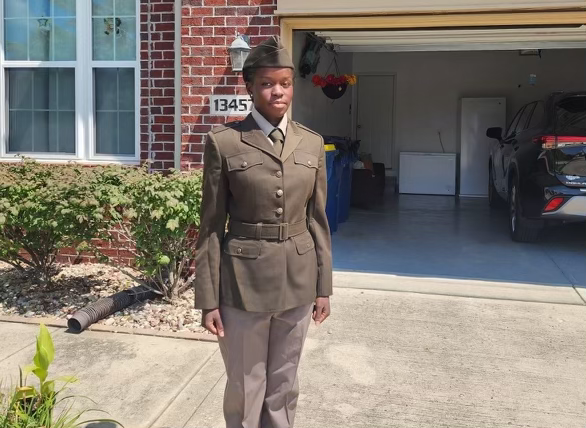








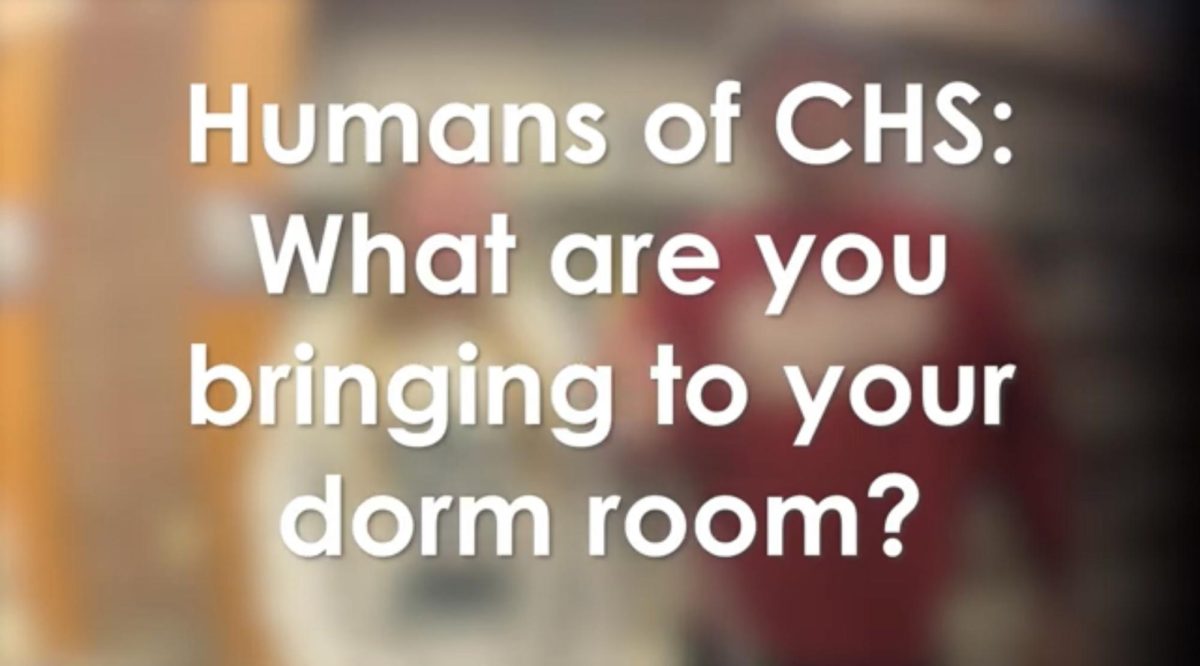























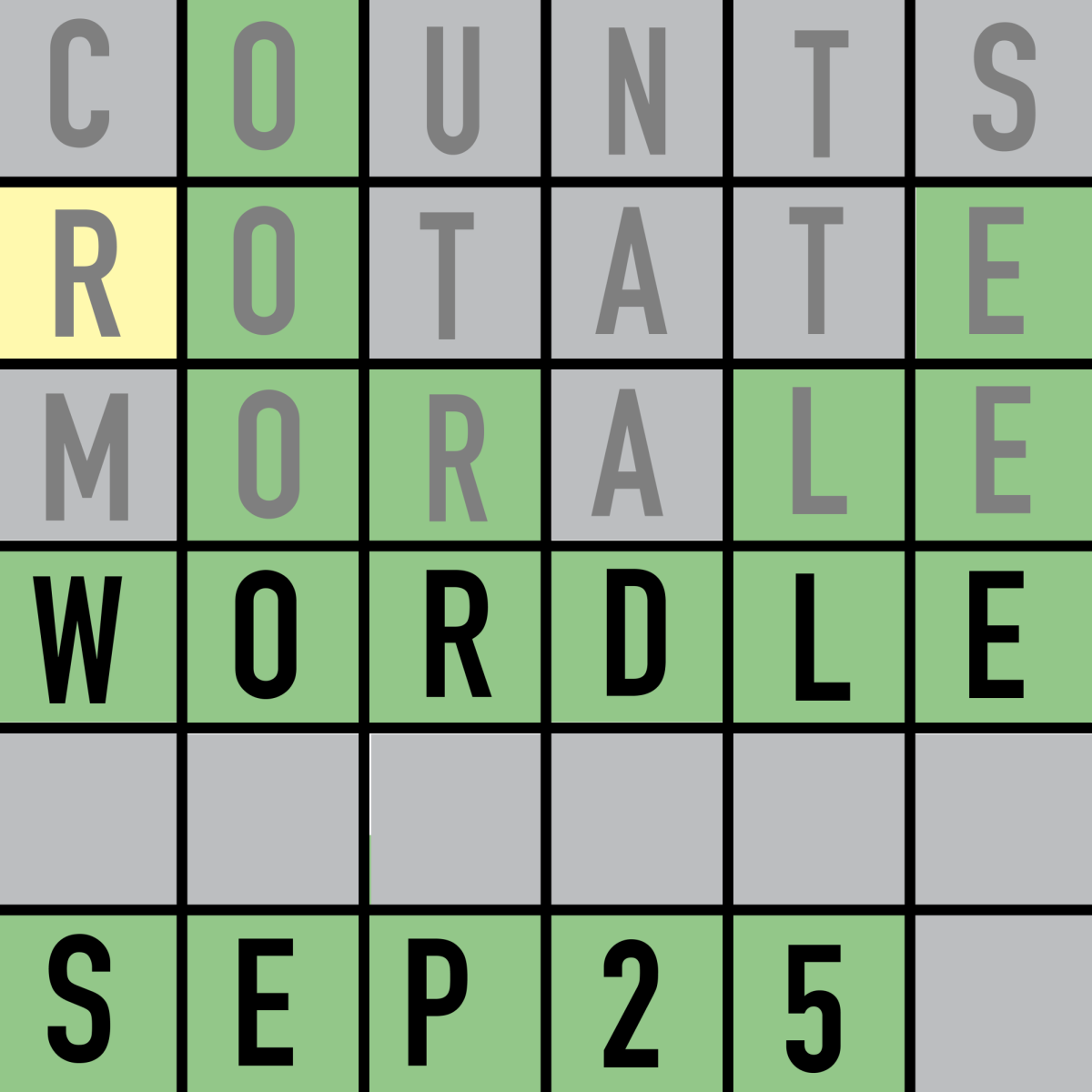

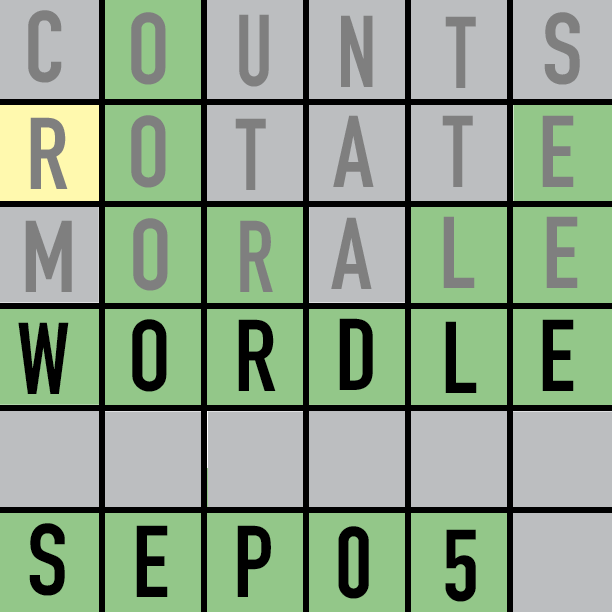




![Review: “Megalopolis” is a bold, bewildering mess [MUSE]](https://hilite.org/wp-content/uploads/2024/10/MV5BYTk3MjUzMGItYmU1NC00M2YyLThmNDMtNDI4NjkxNjgzMjQzXkEyXkFqcGdeQXRyYW5zY29kZS13b3JrZmxvdw@@._V1_-1200x675.jpg)
![Review: Judy Moody encourages viewers to make the best out of their summer [MUSE]](https://hilite.org/wp-content/uploads/2024/10/MV5BMjA4NDc0NzI5OV5BMl5BanBnXkFtZTcwMjc0MDA4NA@@._V1_-810x1200.jpg)
![Review: “Zen and the Art of Motorcycle Maintenance” is a breathtaking novel based on a true story [MUSE]](https://hilite.org/wp-content/uploads/2024/10/Screenshot-2024-10-14-at-11.45.50 AM.png)
![Review in Print: Maripaz Villar brings a delightfully unique style to the world of WEBTOON [MUSE]](https://hilite.org/wp-content/uploads/2023/12/maripazcover-1200x960.jpg)
![Review: “The Sword of Kaigen” is a masterpiece [MUSE]](https://hilite.org/wp-content/uploads/2023/11/Screenshot-2023-11-26-201051.png)
![Review: Gateron Oil Kings, great linear switches, okay price [MUSE]](https://hilite.org/wp-content/uploads/2023/11/Screenshot-2023-11-26-200553.png)
![Review: “A Haunting in Venice” is a significant improvement from other Agatha Christie adaptations [MUSE]](https://hilite.org/wp-content/uploads/2023/11/e7ee2938a6d422669771bce6d8088521.jpg)
![Review: A Thanksgiving story from elementary school, still just as interesting [MUSE]](https://hilite.org/wp-content/uploads/2023/11/Screenshot-2023-11-26-195514-987x1200.png)
![Review: "When I Fly Towards You", cute, uplifting youth drama [MUSE]](https://hilite.org/wp-content/uploads/2023/09/When-I-Fly-Towards-You-Chinese-drama.png)
![Postcards from Muse: Hawaii Travel Diary [MUSE]](https://hilite.org/wp-content/uploads/2023/09/My-project-1-1200x1200.jpg)
![Review: "Ladybug & Cat Noir: The Movie," departure from original show [MUSE]](https://hilite.org/wp-content/uploads/2023/09/Ladybug__Cat_Noir_-_The_Movie_poster.jpg)
![Review in Print: "Hidden Love" is the cute, uplifting drama everyone needs [MUSE]](https://hilite.org/wp-content/uploads/2023/09/hiddenlovecover-e1693597208225-1030x1200.png)
![Review in Print: "Heartstopper" is the heartwarming queer romance we all need [MUSE]](https://hilite.org/wp-content/uploads/2023/08/museheartstoppercover-1200x654.png)




